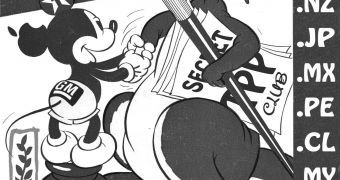Surprising absolutely no one, the Trans-Pacific Partnership agreement is worse than ACTA or anything else before it. The lobbyists supported by the entertainment business are pulling no punches this time and are pushing for some of the most draconian copyright laws ever seen.
The trade agreement asks participating countries to give up the few copyright exceptions and liberties that we the public still enjoy, so that corporations can get even richer selling stuff they shouldn't really own in the first place.
Wikileaks revealed a very recent complete draft of the trade agreement and it's everything we feared and more. The agreement, much like ACTA before it, is just a trade pact between several countries on the Pacific Rim, as the name suggests.
But the agreement comes with some big strings attached and all the countries that sign it will be forced to change their copyright laws, for the worse. Everything that's "good" or at least "not so bad" in the current laws will be changed.
On the one hand, copyright terms will be getting yet another extension, ensuring that corporations can milk the creations of long dead people for centuries. Exceptions, like fair use, will be removed or severely limited. The agreement also pushes for more things to be copyrightable or patentable, things like data that currently can't be protected since it's fact and not artistic creation.
Exceptions for patent enforcement, like the ability to create generic versions of life-saving drugs, are also to be removed, if the agreement goes into place in its current form. For the pharma industry, if you can't afford expensive medicine, you might as well die.
It doesn't stop here, the agreement proposes tough punishment for breaking DRM protection, even if the work protected by the DRM is not copyrighted. So if someone takes a public domain work, like anything Shakespeare wrote, and slaps some DRM around it, it will be illegal for you to try to copy that work which by law belongs to you, the public. The EFF has a more detailed dive into what the current draft suggests.

 14 DAY TRIAL //
14 DAY TRIAL //